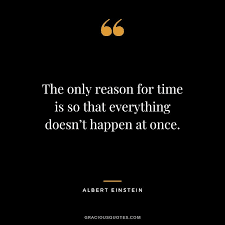God and Time
I know I’ve addressed this issue before, but it still interests me. Why can I NOT think of God without thinking of time? And I mean God in time and time in God. Oh, perhaps not time as we experience it, but temporality in the sense of passage of moments: past passing into present passing into future, present passing into past, etc. I simply can’t. Is that something wrong with me or…?
I well remember the first time someone told me that God is “outside of time.” I regarded that as absurd, insofar as we both thought of God as personal and relational: Father, Son and Holy Spirit as three distinct “persons” however intimately united as one God. What is a personal relationship without time?
I also thought it absurd because the person who told me God is outside of time was a Bible believer. His claim drove me to re-study the Bible and books about God and time written by Bible-believing Christians. My conclusion, after years of such study, was that nothing in the Bible indicates that God is “outside of time” or that “all times are simultaneous to God” or that God “lives” in an “eternal now.”
Then, I encountered some scholarly theological works, some by evangelical Christians and some by non-evangelical Christians, that argued very cogently that the God of the Bible, our God, is everlasting but not eternal in the sense of outside of time: God and Time by Nelson Pike, God Everlasting (and essay and book chapter) by Nicholas Wolterstorff, and God After God by Robert Jenson. Somewhere along that way I read Karl Barth on the subject and discovered that he believed in a special “divine temporality” even without the immanent Trinity, in eternity, apart from the creation or incarnation.
But during my forty year career of teaching Christian theology I discovered that most of my Christian students assumed that God-in-himself (apart from Jesus Christ in his incarnation) is timeless, outside of time, non-temporal. Where did they learn this? Well, from their pastors and parents and spiritual mentors (e.g., Sunday School teachers). I began “digging” for the sources and discovered that, among others, popular Christian writer A. W. Tozer believed that God is “outside of time.” But I detected more than a hint of neo-Platonism in some of Tozer’s descriptions of God’s attributes in, for example, The Knowledge of the Holy.
My years long study of this issue led me to believe, as I still do, that the idea of God’s alleged “timelessness,” non-temporality, “eternal nowness,” originated in Greek philosophy and crept from there into the second century Christian apologists such as Justin Martyr and was later picked up by Clement of Alexandria and Origen and promoted by Augustine. I believe they were attempting to pay unnecessary metaphysical compliments to God (language I borrow from my friend Greg Boyd).
I have come to believe that time is necessary for inter-personal relationships and possibly for being itself insofar as being thinks. And I believe the God of the Bible must be thought of narratively (a la Hegel).
Some here and elsewhere have claimed that time is a function of matter and that modern physics has proven that. I have read a lot of books about modern physics and am not convinced that physics has proven any such thing. But that is not relevant to my comments here (so please do not bring up physics as I am talking here about metaphysics). I know enough about physics to know that modern physicist disagree among themselves about time.
Theologian George Lindbeck, building on his colleague Hans Frei’s narrative-based theology, said that for the Christian “the Bible absorbs the world.” This is the basic tenet of so-called “postliberal theology.” The movement I read that it kind of “transported” me back to the religion of my childhood and youth, before I was introduced to “sophisticated theology.” The religion of my youth emphasized emphatically that prayer can make a difference, that if we do not pray some good things, even things God wants to do, may not happen. Now that was not always or maybe ever explained well in that context, but it was part and parcel of “my Christianity,” the Christian ethos of my childhood and youth. And I have held onto that throughout my life.
If I ever came to believe that God is “outside of time,” so to speak, I would have to agree with Friedrich Schleiermacher that petitionary prayer is an immature form of prayer. But Schleiermacher believed that for two reasons: 1) his basic Calvinist view of God’s sovereignty (God as all-determining), and 2) his belief that petitionary prayer attempts to make God dependent on us whereas the foundational truth (of God-consciousness) is that we are dependent on God and God is in no way dependent on us.
Who am I trying to convince? Not you who are die-hard believers in God’s non-temporality but those of you who are undecided. I believe that belief in God’s non-temporality contributes to a weak prayer life. What’s the point of earnestly “wrestling with God” in prayer if God is outside of time? In that case, God would have already experienced all things and all things would already be decided and prayer could not make a difference to God.
*Note: If you choose to comment, make sure your comment is relatively brief (no more than 100 words), on topic, addressed to me, civil and respectful (not hostile or argumentative), and devoid of pictures or links.*














